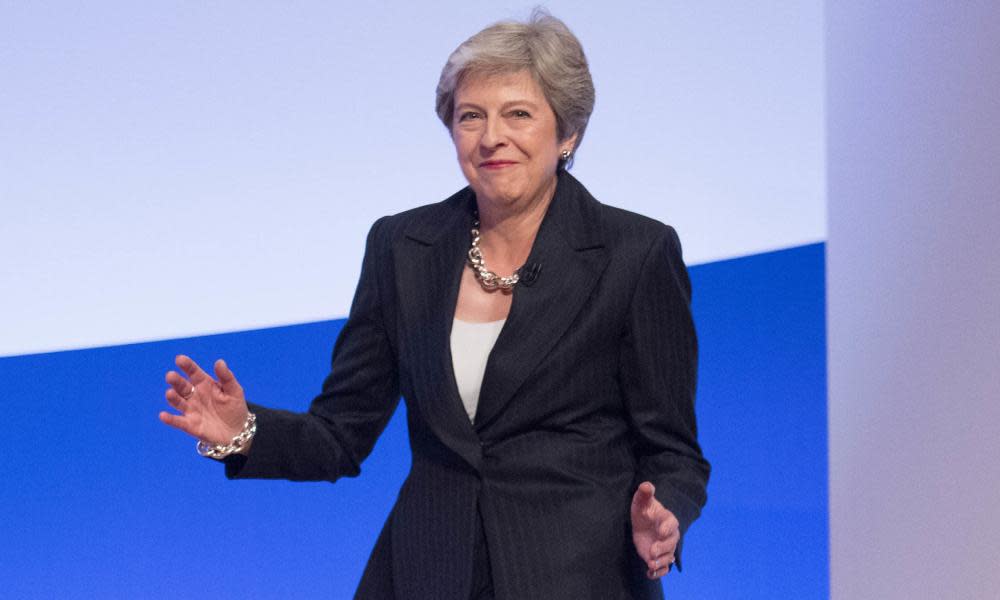A second referendum and curbs on migration

Jonathan Freedland is right to argue that the EU is not going to bust apart its treaty laws just to give anti-foreigner forces here some comfort (Winning a second referendum is possible – with Europe’s help, 15 December). Indeed, in the political declaration agreed between Theresa May and other heads of government, the EU27 make clear the four freedoms of movement – of capital, goods, services and people – are “indivisible”.
That is one reason why the deal is unworkable. Even were it voted through by the Commons, it would founder once Britain insists on telling European citizens they are not welcome in the UK.
That is made perfectly clear to anyone who bothers to talk to elected politicians in 27 European capitals. Many of the EU27 have greater numbers of Europeans working and living there than the UK does, and cannot comprehend the UK hostility to workers who pay taxes and add value to the economy.
There is an answer, as Freedland suggests. It is to control the need for incomers by promoting jobs, training and access to work for British citizens. Freedom of movement does not extend to all state employment, but we do not train sufficient doctors and nurses in Britain. Why not? There are tough EU rules on posted workers and gangmaster employment agencies, but we choose not to enforce them. All other EU countries register workers or have ID card systems, and EU citizens without a job can be required to go home.
We can demand work and residence visas, but British expats or those who want to live, work or retire in Europe will face reciprocal discrimination. The TUC, the CBI, thinktanks and academics should work on proposals to control and manage movement of workers into Britain without killing access for our goods and services and people.
Dr Denis MacShane
London
• Finally! The Guardian has addressed a central Brexit mystery: why didn’t Theresa May, as immigration-hostile home secretary, or David Cameron, as pathetic pre-referendum beseecher of Angela Merkel, avail themselves of the “whole range of controls” used by other EU member states to control free movement of people? May might have reached her toxic number-reduction target, and Cameron might have avoided the referendum (which he never wanted or expected to have to implement). So let May or her successor rescind or suspend article 50, implement the full range of available controls (or promise to do so), and hold a second referendum, asking those who voted to leave: “Now that we’ve addressed your concerns about free movement, do you still want the UK to leave?”
Chris Hughes
Leicester
• I cannot agree with Jonathan Freedland that “winning a second referendum is possible”. A second referendum, whichever way it pans out, could possibly lead to gilets jaunes-style riots on the streets of the UK. The government and opposition parties are all being nebulous. They are paid to make important decisions. Let them vote on the three options – current May option, no deal, or remain and put an end to this Brexit fiasco once and for all.
John Daunton
London
• Your article (Another vote? Perplexing logistics of a second referendum”, 15 December) poses the question: “Would article 50 have to be suspended?” Correctly, you reply: “Almost inevitably”. However, you then bring up the recent judgment of the European court of justice and broadcast a confusion that seems to be widespread in the media.
That judgment is for practical purposes irrelevant. It shows the UK can cancel its notification of withdrawal, provided it does so before its exit date (or earlier ratification by both parties of an exit agreement). It does not enable the UK on its own to suspend article 50: extension of the two-year negotiation period requires unanimous agreement of UK and all the other member states.
It is hardly plausible that ahead of a people’s vote the government, rather than arranging for the suspension of the Brexit process, would look to cancel it. Not only would that course require specific UK primary legislation, but it would also put before the country the selfsame choice as in 2016, inasmuch as there would be no extant negotiated Brexit text for voters to approve or reject. Rather, if a meaningful people’s vote were to go ahead in the coming months, it would need, as well as UK primary legislation to remove the hard exit date of 29 March, agreement of all member states to the extension of the current two-year negotiating period.
If the judgment of the court of justice had been different, it would not have been so straightforward to give timely effect to a people’s vote to remain; but that is its only practical relevance.
Bill Trythall
York
• Your article discusses the option of using the alternative vote (AV) in a multi-choice referendum and correctly identifies the risk of eliminating the “condorcet winner”, ie, the overall consensus choice. However, there is a straightforward solution. Rather than simply eliminating the single option with the lowest number of votes at each stage (the normal AV procedure), instead hold a run-off between the lowest two to determine which is eliminated. This would ensure that the condorcet winner (if any) emerges as the actual referendum winner.
Francis McGonigal
Birmingham City University
• I had always assumed that Theresa May’s habitual “Let me be clear” was simply a vacuous assertion. As the chaos unfolds, I have realised that it is in fact a prayer.
John Geddes
Winster, Derbyshire
• Join the debate – email guardian.letters@theguardian.com
• Read more Guardian letters – click here to visit gu.com/letters
• Do you have a photo you’d like to share with Guardian readers? Click here to upload it and we’ll publish the best submissions in the letters spread of our print edition

 Yahoo News
Yahoo News 
